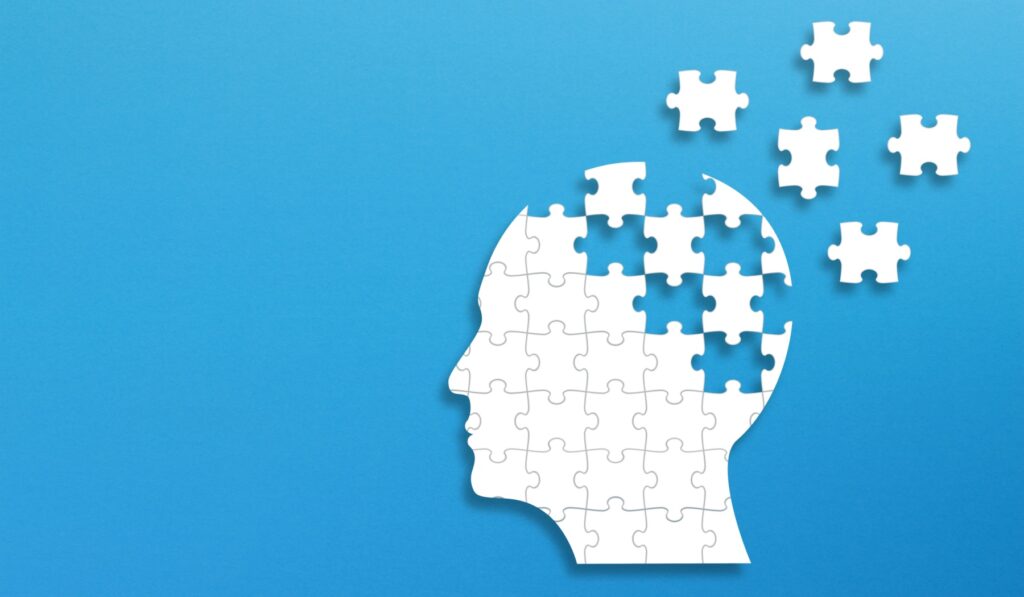Key Takeaways
Lewy body dementia progresses through 7 distinct stages, starting with no noticeable symptoms and gradually advancing to severe cognitive and physical decline. Each person’s timeline and experience vary significantly, but in general, the stages of Lewy body dementia are:
- Stage 1: No cognitive decline
- Stage 2: Very mild cognitive decline
- Stage 3: Mild cognitive decline
- Stage 4: Moderate cognitive decline
- Stage 5: Moderately severe cognitive decline
- Stage 6: Severe cognitive decline
- Stage 7: Very severe cognitive decline
Understanding these stages can help you explore questions to ask when choosing memory care before it becomes urgent.
When your loved one receives a Lewy body dementia diagnosis, understanding what lies ahead can feel overwhelming. You’re probably wondering how the condition will progress and what changes to expect over time.
Learning about what to expect from memory care can help you prepare for the journey ahead.
Understanding Lewy Body Dementia and How It Affects Families
Lewy body dementia happens when abnormal protein deposits build up in brain cells, impacting thinking, movement, and behavior. Unlike other forms of dementia that primarily impact memory first, this condition often begins with movement problems and visual hallucinations.
Adults over 50 face a higher risk, especially men, though anyone can develop this condition. Family history, certain genetic factors, and exposure to specific toxins may increase the likelihood.
Early Warning Signs and Symptoms You Should Know
The first signs of Lewy body dementia often surprise families because they don’t always look like typical memory problems. Movement issues, such as tremors, stiffness, or shuffling steps, often appear before memory changes become noticeable.
Visual hallucinations represent another early indicator that sets this condition apart from other types of dementia. Your loved one might see people, animals, or objects that aren’t really there, and these experiences can feel very real to them.
Sleep disturbances also signal potential problems, particularly when someone acts out their dreams physically during sleep. Other early signs include:
- Fluctuating attention and alertness
- Changes in thinking speed from day to day
- Depression or anxiety
- Problems with balance and falls
You should seek medical evaluation when these symptoms interfere with daily activities or safety. Early diagnosis helps families access appropriate care and support services sooner.
The Complete 7 Stages of Lewy Body Dementia Explained
Stage 1: No Cognitive Decline
During this earliest stage, your loved one functions normally without any noticeable symptoms. Brain changes may be starting, but they haven’t yet affected daily life or abilities.
This stage can last for years before any signs become apparent to family members or medical professionals.
Stage 2: Very Mild Cognitive Decline
Subtle changes in memory and thinking begin to emerge, although they may seem like a normal part of aging. Your loved one might occasionally forget familiar names or misplace items more often.
These changes are usually so mild that even close family members don’t recognize them as signs of a developing condition.
Stage 3: Mild Cognitive Decline
Forgetfulness becomes more noticeable, and concentration problems begin to affect work or social activities. Your loved one might have trouble finding the right words during conversations or struggle with planning tasks.
The mild stage is often when family members begin to feel concerned and consider seeking medical advice.
Stage 4: Moderate Cognitive Decline
Most people receive their Lewy body dementia diagnosis during this stage as symptoms become clearly apparent. Daily tasks become more challenging, such as managing finances, cooking complex meals, or driving safely.
Your loved one will likely need increased support and supervision to maintain their independence safely.
Stage 5: Moderately Severe Cognitive Decline
Significant memory problems develop at this stage, and your loved one requires assistance with many daily activities, such as bathing, dressing, and meal preparation. They might struggle to remember important details about their life or current events.
Communication becomes more difficult, and recognizing familiar people or places may become inconsistent. Understanding communication tips for dementia can help families navigate these challenges more effectively.
Stage 6: Severe Cognitive Decline
Major personality changes occur alongside substantial memory loss, and your loved one requires full-time care for safety and daily needs. Physical symptoms, such as movement problems and balance issues, become more pronounced.
Professional care often becomes necessary when family caregivers are unable to provide the level of supervision and assistance required.
Stage 7: Very Severe Cognitive Decline
The final stage typically involves significant communication and mobility challenges. Your loved one may experience difficulty speaking clearly, walking independently, or consistently recognizing family members.
Care focuses on comfort, quality of life, and maintaining dignity while managing physical and emotional needs.
How Quickly Does Lewy Body Dementia Progress?
Progression typically takes 5–7 years from diagnosis to advanced stages, though this timeline varies significantly between individuals. Some people move through stages more quickly, while others maintain certain abilities for longer periods.
Several factors influence how fast symptoms develop, including overall health, access to treatment, and individual brain chemistry. Social activity, physical exercise, and mental stimulation may help slow progression in some cases.
Each person’s journey looks different because the condition affects everyone uniquely. While stages provide a general framework, your loved one might experience symptoms in a different order or seem to skip certain characteristics entirely.

Care Options and Support Throughout Each Stage
Finding care for your loved one and your family is a personal decision that depends on several factors, including the stage of progression, your budget, and your preferences.
Remember, there are options and resources available that can provide the support you need and help give family caregivers relief.
Memory Care
Memory care communities become helpful when your loved one needs support for living safely and with dignity every day.
The lifestyle offers specialized supervision and programming designed for people living with dementia, as well as structured environments with trained staff who understand the unique needs of those with Lewy body dementia.
Respite Care
Respite care provides temporary relief for family caregivers who need breaks to handle personal responsibilities or simply recharge.
It’s a service that can help family caregivers of those with Lewy body dementia manage unexpected needs for extra support. It also helps caregivers avoid burnout caused by caregiving.
Moving Forward with Confidence and Support
You don’t have to navigate this journey alone—professional support and resources are available to help.
Begin by connecting with healthcare providers who specialize in dementia care and can provide guidance on treatment decisions. Consider touring memory care communities before you need them urgently, so you can make thoughtful choices.
At Inspired Living at Ivy Ridge, we understand the unique challenges families face when dealing with dementia and Alzheimer’s. We provide compassionate support throughout each stage of the journey.
Schedule a visit today to discover how we can support your family in navigating this path with dignity and care.









